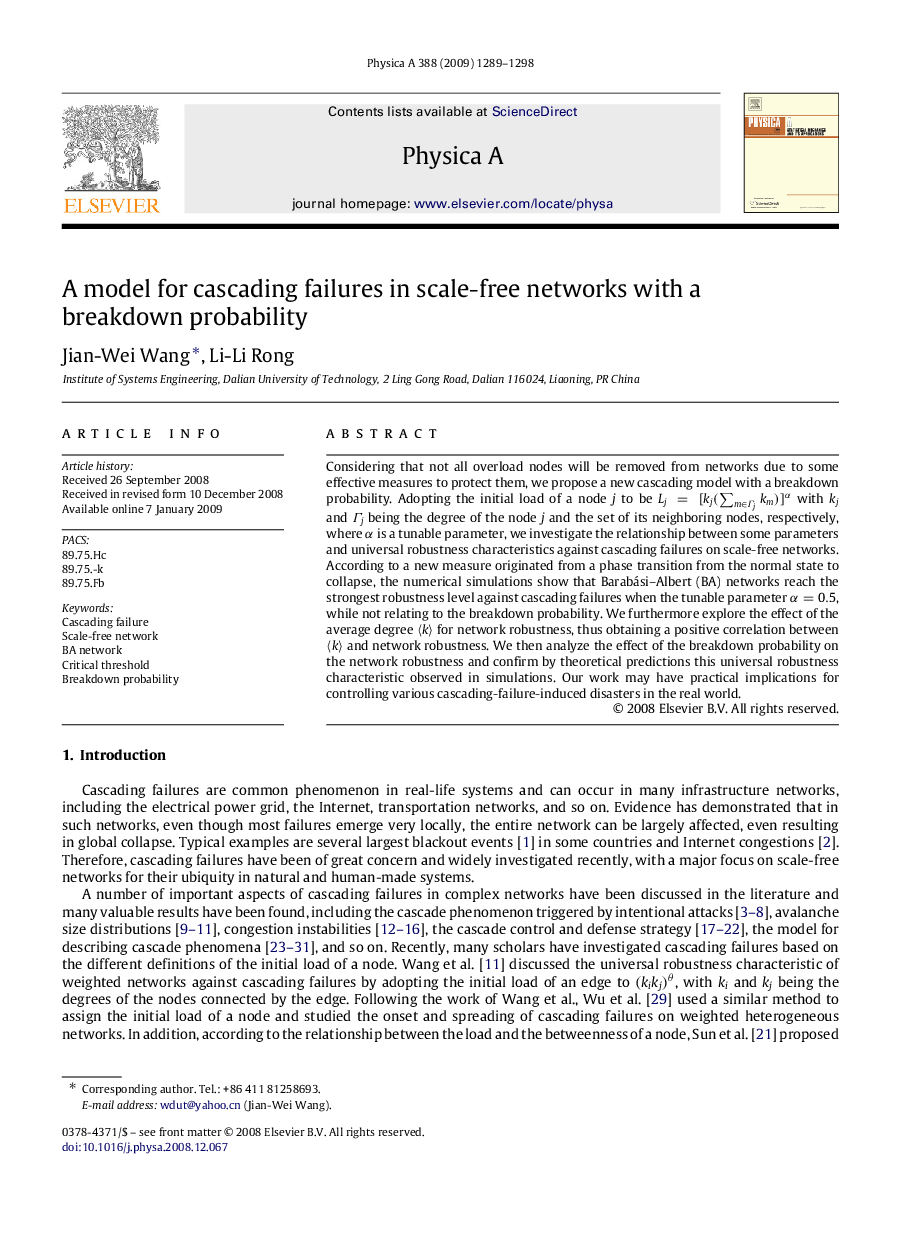| Article ID | Journal | Published Year | Pages | File Type |
|---|---|---|---|---|
| 977305 | Physica A: Statistical Mechanics and its Applications | 2009 | 10 Pages |
Considering that not all overload nodes will be removed from networks due to some effective measures to protect them, we propose a new cascading model with a breakdown probability. Adopting the initial load of a node jj to be Lj=[kj(∑m∈Γjkm)]αLj=[kj(∑m∈Γjkm)]α with kjkj and ΓjΓj being the degree of the node jj and the set of its neighboring nodes, respectively, where αα is a tunable parameter, we investigate the relationship between some parameters and universal robustness characteristics against cascading failures on scale-free networks. According to a new measure originated from a phase transition from the normal state to collapse, the numerical simulations show that Barabási–Albert (BA) networks reach the strongest robustness level against cascading failures when the tunable parameter α=0.5α=0.5, while not relating to the breakdown probability. We furthermore explore the effect of the average degree 〈k〉〈k〉 for network robustness, thus obtaining a positive correlation between 〈k〉〈k〉 and network robustness. We then analyze the effect of the breakdown probability on the network robustness and confirm by theoretical predictions this universal robustness characteristic observed in simulations. Our work may have practical implications for controlling various cascading-failure-induced disasters in the real world.
